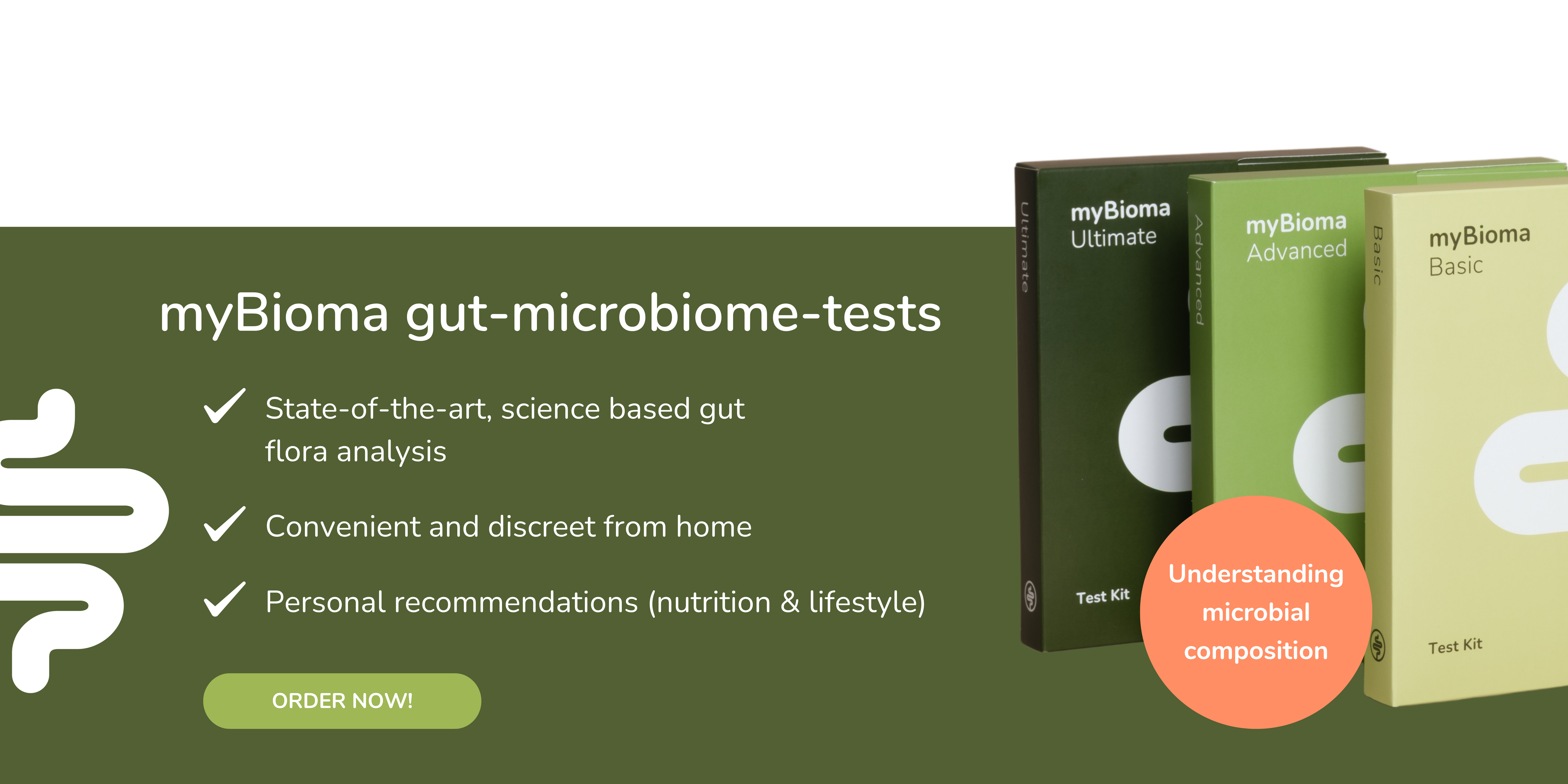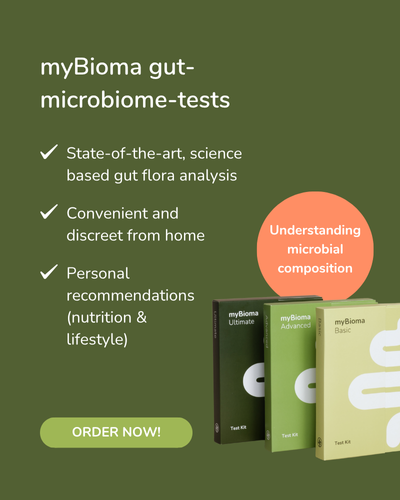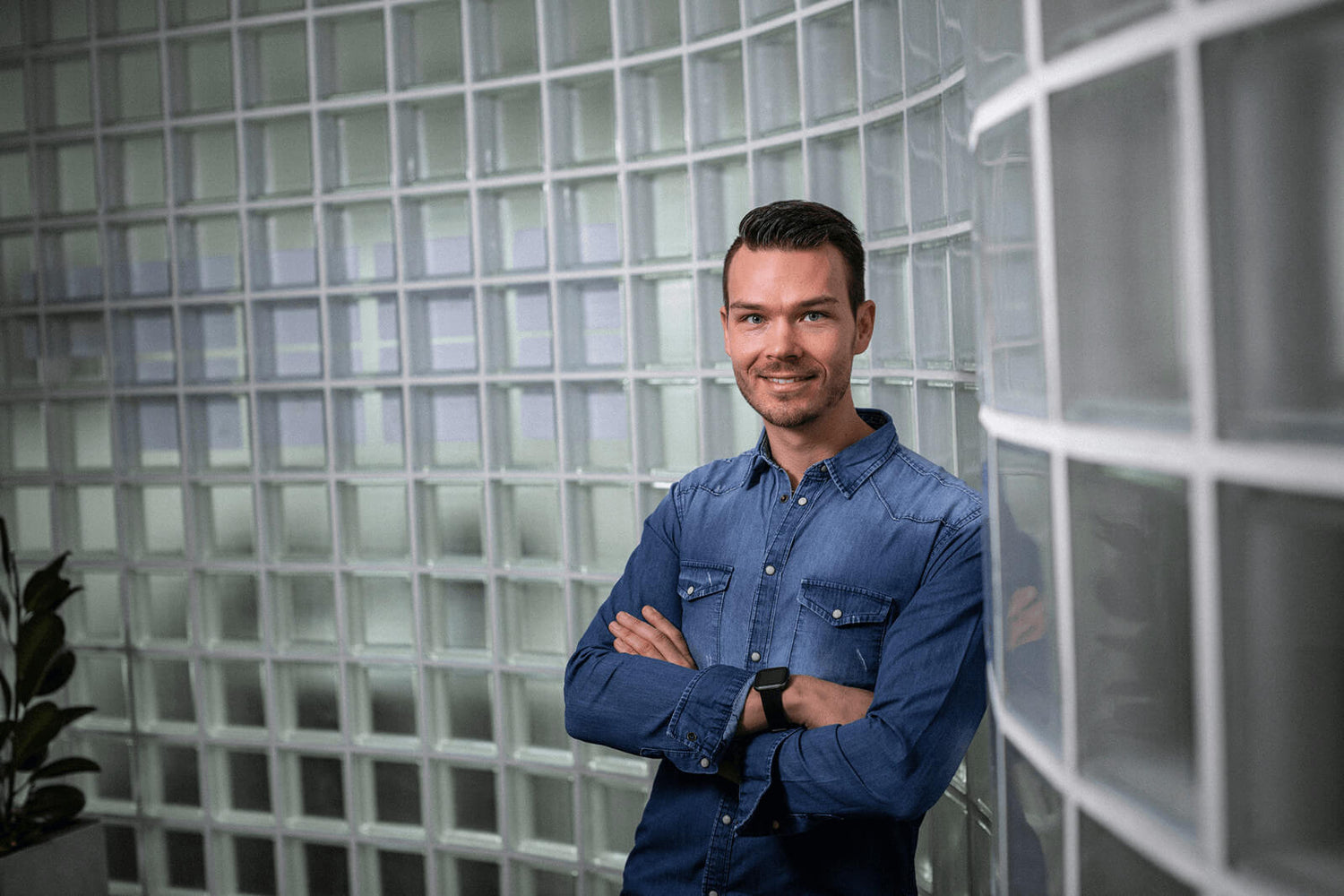Table of contents
- CHEW YOURSELF SLIM?
- Please introduce yourself to our readers and tell us what is a chewing expert and how did that come about?
- “Chew Yourself Slim” is the title of your book. Tell me roughly what awaits me as a reader and who did you write it for in particular?
- “The swallowing reflex is impatient, but that can be changed! “
- How can I train this swallowing reflex and what would be your first tips for me?
- Saliva: What is so magical about it and why are so many people disgusted by it?
- Which people come to you and what does coaching look like?
- So what is the difference between the importance of a well-chewed food pulp for our digestive tract compared to poorly chewed food?
- You work with our myBioma analysis. What advantages do you personally see in it?
- What can I do initially to improve my intestinal microbiome and maintain it successfully in the long term?
CHEW YOURSELF SLIM?
OK, I think everyone has heard the following sentences: “Don’t swallow like that!” or “Now chew a little longer!” and may have been a little annoyed or even offended.
My guest today hits exactly this nerve again. As a chewing expert, weight loss coach and book author, she trains her clients on how to chew EXACTLY.
Hello dear Barbara, thank you very much for taking time for us today.
Please introduce yourself to our readers and tell us what is a chewing expert and how did that come about?
Very gladly. As a weight loss coach and chewing trainer, I accompany my clients out of the diet spiral and into an enjoyable life at their comfortable weight. We are placing emphasis on HOW we eat, no longer just what. Many people's minds are full of prohibitions and rules that they should adhere to in order to lose weight. Usually with little joy in the matter and a lack of success.
In my opinion, everything is allowed. It's the quantity that counts. And if you pay more attention to the bite, you will quickly notice that a lot suddenly changes in terms of portion size.
How did I get good at chewing? Seriously? On the toilet! One day my daughter took a closer look at my “shop” and was very surprised to tell me that the sunflower seeds from my breakfast were still there. That's when it clicked for me. Because of a nerve injury, I specially pimped my muesli with it and then the good ingredients just end up in the sewage system. That does not work at all. From that point on I chewed everything until it was really mushy. And I noticed how much more flavor I experience as a result. And not only that. I was full faster. From that moment on, no nutritional advice was given to me without chewing training. With the result that my clients don't have to go without anything and still achieve their comfortable weight. Just completely enjoyable and without a diet.
“Chew Yourself Slim” is the title of your book. Tell me roughly what awaits me as a reader and who did you write it for in particular?
“Chew yourself slim” is for everyone who wants to reach or maintain their comfortable weight in a healthy and enjoyable way. Without starting a new diet. The reader will immerse himself in the fascinating world of digestion and taste and realize the great influence that chewing has on it. Of course, there are clear step-by-step instructions on how best to get started and why you can throw typical diet myths overboard.
To be completely honest, I can't eat fast enough. And the spoon is my favorite tool for shoveling. As much as possible in a short time, that could probably be my motto. Barbara, your chewing hairs are probably standing up right now, but tell us, am I an isolated case and why is chewing more of a necessary evil for me?
I can reassure you, you are by no means an isolated case. When I look around, and I really enjoy doing so, snaring is very common. This is due to our swallowing reflex and our eating habits, which we copy from others. Beware of everyone who wanted to blame the swallowing reflex. Without him, we would be pretty much lost as infants. The good mother's milk wouldn't go where it should. So he's not the bad guy. He's just impatient. But that can be changed.
“The swallowing reflex is impatient, but that can be changed! “
For someone like me who, after two minutes of chewing, feels the uncontrollable urge to swallow his gum after the taste has subtly disappeared.
How can I train this swallowing reflex and what would be your first tips for me?
It is important to understand that your swallowing reflex is not the only one in charge. Your teeth, your tongue and your sense of taste are also in your mouth. Everyone can learn to work as a team again.
The swallowing reflex can be on the mat at any time. Then it is important that your tongue has learned that it only lets down what has already been chewed well and is liquid or mushy. The rest remains in the mouth and continues to be chewed. In this way, the sense of taste gets its full benefit because a bite simply stays in the mouth for much longer.
Once swallowed, the taste is gone because we no longer have taste buds in our stomachs. Anyone who swallows quickly and hastily will logically reach into the packet of biscuits much more often than if a biscuit has been fully enjoyed.
I read that you are a big fan of our “magic juice” saliva. When I think of saliva, I immediately think of the reaction of a friend who doesn't share our enthusiasm for our “mouth water” at all.
Saliva: What is so magical about it and why are so many people disgusted by it?
It usually only gets disgusting when it comes to other people's saliva. We suspect – incorrectly – that there are a lot of pathogenic germs in there. There may be one or two unpleasant memories from our kindergarten days when we were spit on. That is also completely understandable. We don't have to get used to other people's saliva; it's enough if we think our own is great. And not just as a child, when you can create wonderful spit bubbles with it, but also in adulthood.
Because saliva works at full speed for our health. Of course, it has a digestive effect because its carbohydrate-splitting enzymes chop up long starch chains into smaller units in the mouth. Saliva also contains enzymes that can render bacteria and viruses harmless. So here is the first important checkpoint for the immune system. Minerals are dissolved in saliva that remineralize our tooth enamel and thus ensure healthy teeth. The taste-enhancing effect should not be neglected. Because once the flavors have been removed from the bite by saliva, our taste buds can perceive them and convey the taste to us. By chewing and salivating well, we also increase the volume of our bite, so that satiety receptors in the stomach are activated better. So you can say that whoever chews better gets full faster.
And one thing is also completely exciting with regard to the microbiome. Akkermansia muciniphila feeds on saliva. If we don't produce enough saliva by swallowing it too quickly, then this valuable bacterium unfortunately becomes very hungry.
I hope these were enough reasons to treat saliva with more admiration and gratitude in the future and to give it the opportunity to do its job. By the way, this only works in the mouth. As soon as the bite reaches the stomach, there is a completely different pH value at which the salivary enzymes are no longer active.
Interesting, now I understand your hype about our saliva.
Which people come to you and what does coaching look like?
Mainly those who want to lose weight and are tired of counting points or calories. Often a certain diet “career” is already included. Sometimes it's intestinal problems that cause them to find me. Or a mix of both. After a few days of chewing training, many people notice improvements in their intestines and digestion and thus enter a completely different feel-good mode. As we know, health is in the gut, and it starts in the mouth.

“As we know, health is in the gut, and it starts in the mouth.” – Chewing trainer Barbara Plaschka from KauGenau.
You know, we at myBioma love our intestinal microbiome and know our health lies in the intestines.
So what is the difference between the importance of a well-chewed food pulp for our digestive tract compared to poorly chewed food?
Why do I support my intestinal bacteria with this?
Our intestines are not an isolated organ that begins somewhere in the middle of the body. Our digestive tract is an approximately 8 meter long tube that begins in the mouth and ends at the anus. The magic happens all along the route. I like to compare it to an assembly line where there are certain stations. Each station is responsible for a different task. And if the work is not done correctly at the first station because everything has to go smoothly again, then these “mistakes” continue. What is not done in the mouth simply creates worse working conditions for the stomach and intestines. A poorly chewed bite, for example, offers less “attack surface” for the digestive enzymes. In addition, large chunks of food can lead to putrefactive processes, whereupon the pH value changes, which of course has an impact on the microbiome.
Chewing not only helps the bite to be broken down and salivated, but it also stimulates our vagus nerve via the tongue. As is well known, its influence on our digestive tract and the microbiome is very, very large. (Please link here to at least 15 brilliant blog posts of yours. If I digress here, it would go beyond the scope). By chewing thoroughly, we set the stage for digestion and can look forward to an efficient intestine and a healthy microbiome. What's better?
You work with our myBioma analysis. What advantages do you personally see in it?
I find it extremely exciting to use the myBioma analysis to gain an insight into the world of your own intestinal microbes. For me, this is comparable to a complete blood count during a health check. Except that it's not about blood lipids or liver values, but about the large number of intestinal inhabitants. How are you positioned personally? What can be improved? Could this possibly explain certain complaints?
All of this has great value for me and I can only recommend the myBioma analysis. The moment of taking the sample alone is a reason to celebrate. Because how often do we give our excretions the attention they actually deserve? Far too rare.
We all know that learning new behaviors can be quite stressful. Therefore my final question:
What can I do initially to improve my intestinal microbiome and maintain it successfully in the long term?
If it's fun and tastes good, then a lot has been done to ensure that we stick with it and don't throw everything away again the day after tomorrow. That's why I recommend taking small steps at the beginning. Under no circumstances should you set the entire meal as a new goal. All it takes is one bite, chewed thoroughly and mindfully. But every day. Because new habits take time.
It's best to chew the morsel outside of typical meals. This way you are not distracted by the everyday setting and the conversation partners. If you would like instructions here, you are welcome to check me out on YouTube. I have “Tuesday is Chewsday” there. This is my gym for chewing endurance, where you learn how the tongue, swallowing reflex and sense of taste work together again. Don't worry, it won't be sweaty, but rather relaxing and enjoyable. So that you're happy to stick with it and automatically pay more attention to the bites in the future.
Dear Barbara, thank you for the great interview. Many readers will probably pay more attention to their own chewing from now on, at least I will.
Barbara Plaschka
Website: https://barbaraplaschka.de/








